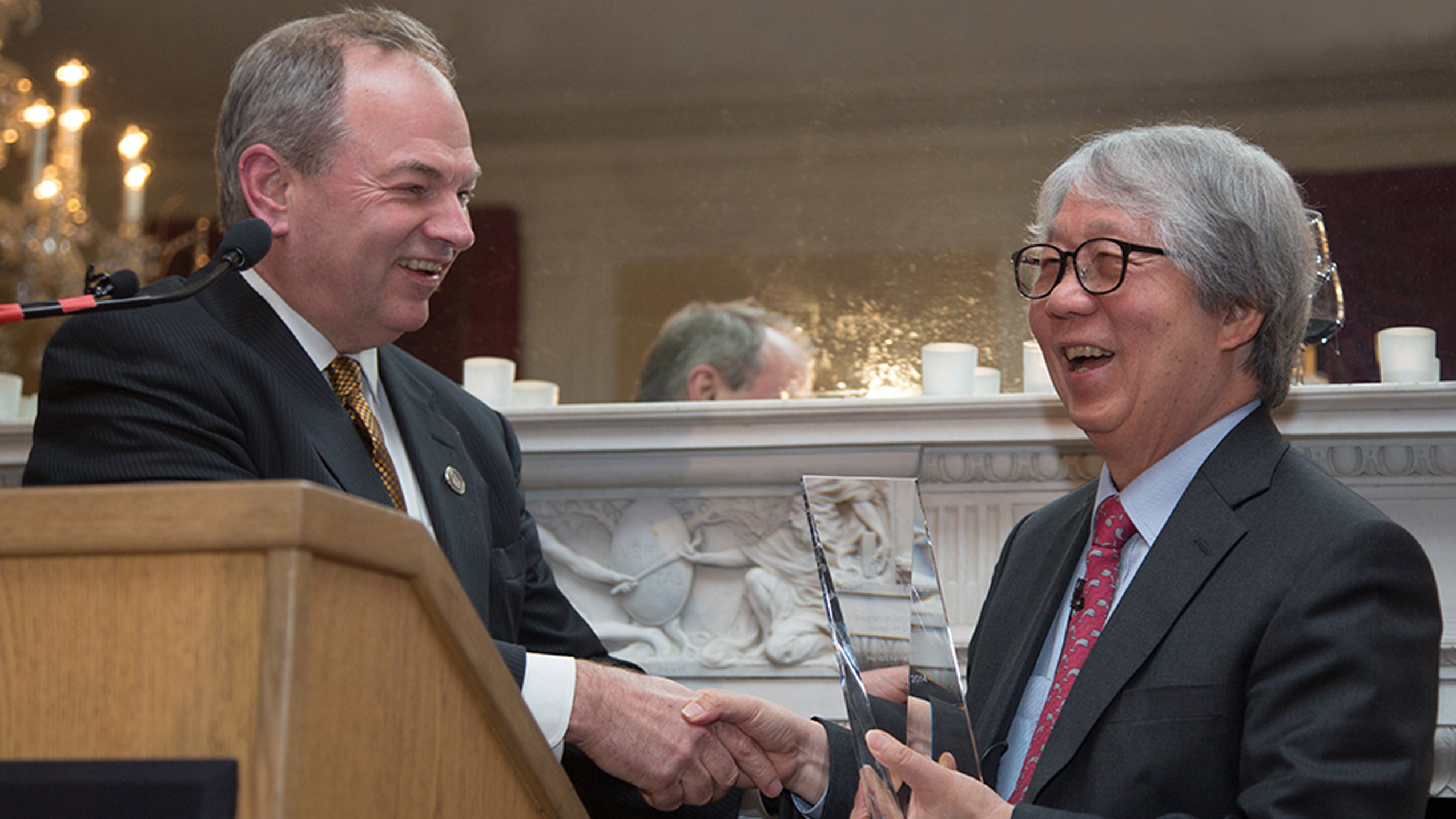Ambassador Tommy Koh LL.M. ’64 of Singapore was recently presented with the 2014 Great Negotiator Award by the Program on Negotiation at Harvard Law School and the Harvard Kennedy School’s Future of Diplomacy Project at the Belfer Center for Science and International Affairs. Koh, the eleventh recipient of the Great Negotiator Award, was recognized for his work as chief negotiator for the United States-Singapore Free Trade Agreement; for chairing the negotiations that produced a charter for the Association of Southeast Asian Nations; for key actions that resolved territorial and humanitarian disputes in the Baltics and Asia; and for successfully leading two unprecedented global mega-conferences: the Third U.N. Conference on the Law of the Sea, and the U.N. Conference on the Environment and Development, also known as the Rio Earth Summit.
“In honoring Ambassador Koh, we have the unique opportunity to learn from one of the world’s leaders in the practice of large-scale, multiparty conference diplomacy—a complex form of negotiation that will be increasingly needed to forge effective collective responses to a range of global problems in areas such as the environment, trade, public health, finance, development, national security, and terrorism,” said James K. Sebenius, Harvard Business School Professor and vice chairman of the Program of Negotiation, in a joint statement with Nicholas Burns, the Sultan of Oman Professor of the Practice of International Relations at Harvard KS and faculty director of the Future of Democracy Project.
Koh was honored during a program on April 10, in the Ames Courtroom, at Harvard Law School. The interactive program featured a conversation with Koh and panel discussions with faculty from PON and FDP. Koh talked about the importance of teamwork and his experiences as chairman of the U.N. Convention on the Law of the Sea and U.N. Conference on Environment and Development.
Great Negotiator Award recipients are recognized for their ability to negotiate against great odds in different settings to accomplish worthy purposes. By discussing the successes and failures of this distinguished group of men and women from varied backgrounds, the events associated with the Great Negotiator Award seek to uncover broader lessons and generalizations about effective negotiation and dispute resolution in public and private settings.
Past Great Negotiator Award honorees include Senator George Mitchell; Special Trade Representative Charlene Barshefsky; Special Representative of the U.N. Secretary General Lakhdar Brahimi; Ambassador Richard Holbrooke; The Honorable Stuart Eizenstat; U.N. High Commissioner for Refugees Sadako Ogata; investment banker Bruce Wasserstein; artists Christo and Jeanne-Claude; former Finnish President Martti Ahtisaari; and former U.S. Secretary of State James A. Baker. Founded in 1983 as a special research project at HLS, the Program on Negotiation is a university consortium dedicated to developing the theory and practice of negotiation and dispute resolution. The Future of Diplomacy Project aims to build the School’s ability to teach in international affairs, to support research in modern diplomatic practice and to build public understanding of diplomacy’s indispensable role in an increasingly complex and globalized world. The second panel, “Bilateral Deals: Trade and Regional Conflicts,” included Koh and Burns, and was moderated by Sebenius.
